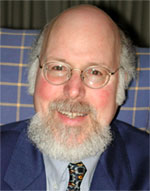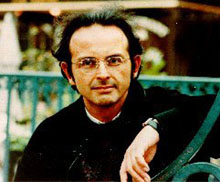The main question is: "Why are empirical questions about how the mind works so weighted down with political and moral and emotional baggage? Why do people believe that there are dangerous implications to the idea that the mind is a product of the brain, that the brain is organized in part by the genome, and that the genome was shaped by natural selection?" This idea has been met with demonstrations, denunciations, picketings, and comparisons to Nazism, both from the right and from the left. And these reactions affect both the day-to-day conduct of science and the public appreciation of the science. By exploring the political and moral colorings of discoveries about what makes us tick, we can have a more honest science and a less fearful intellectual milieu.
Introduction

Every few years a book is published that commands our attention and causes us to consider questions that challenge our basic assumptions about ourselves. This month marks the publication of such a book, The Blank Slate: The Modern Denial of Human Nature by MIT research psychologist Steven Pinker.
Pinker is a unifier, someone who ties a lot of big ideas together. He has studied visual cognition and language acquisition in the laboratory, and was one of the first to develop computational models of how children learn the words and grammar of their first language. He has merged Chomskyan ideas about an innate language faculty with the Darwinian theory of adaptation and natural selection. Pinker also wrote one of the most influential critiques of neural-network models of the mind.
His book The Language Instinct discussed all aspects of language in a unified, Darwinian framework, and in How the Mind Works he did the same for the rest of the mind, explaining "what the mind is, how it evolved, and how it allows us to see, think, feel, laugh, interact, enjoy the arts, and ponder the mysteries of life."
In The Blank Slate, he notes "that there is a quasi-religious theory of human nature that is prevalent among pundits and intellectuals, which includes both empirical assumptions about how the mind works and a set of values that people hang on those assumptions. The theory has three parts".
One is the doctrine of "the blank slate": that we have no inherent talents or temperaments, because the mind is shaped completely by the environment§parenting, culture, and society.
"The second is "the noble savage": that evil motives are not inherent to people but come from corrupting social institutions.
The third is "the ghost in the machine", that the most important part of us is somehow independent of our biology, so that our ability to have experiences and make choices can't be explained by our physiological makeup and evolutionary history.
These three ideas are increasingly being challenged by the sciences of the mind, brain, genes, and evolution," he says, "but they are held as much for their moral and political uplift as for any empirical rationale. People think that these doctrines are preferable on moral grounds and that the alternative is forbidden territory that we should avoid at all costs".
—JB
STEVEN PINKER, research psychologist, is Peter de Florez Professor in the Department of Brain and Cognitive Sciences at the MIT; director of the McDonnell-Pew Center for Cognitive Neuroscience at MIT; author of Language Learnability and Language Development: Learnability and Cognition; The Language Instinct; How the Mind Works; Words and Rules: The Ingredients of Language, and The Blank Slate: The Modern Denial of Human Nature.
His research on visual cognition and on the psychology of language has received the Troland Award from the National Academy of Sciences and two prizes from the American Psychological Association. He has also received awards for his graduate teaching at MIT and for his undergraduate teaching at MIT, two prizes for general achievement, an honorary doctorate, and five awards for his popular science books.
Pinker is a fellow of several scholarly societies, including the American Academy of Arts and Sciences and the American Association for the Advancement of Science. He is an associate editor of Cognition and serves on many professional panels, including the Usage Panel of the American Heritage Dictionary and the Scientific Advisory Panel of an 8-hour NOVA television series on evolution. He also writes frequently in the popular press, including The New York Times, Time, Slate, and The New Yorker.
Steven Pinker's Edge Bio Page





